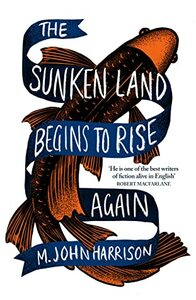Take a photo of a barcode or cover
challenging
mysterious
reflective
slow-paced
I don’t by any means think this is a bad book, I just think it is meant for someone who is not me. I was so confused the whole time and there was no payoff in my opinion.
dark
funny
mysterious
reflective
medium-paced
Plot or Character Driven:
Character
Strong character development:
Complicated
Loveable characters:
Complicated
Diverse cast of characters:
No
Flaws of characters a main focus:
Yes
challenging
dark
mysterious
reflective
tense
slow-paced
Plot or Character Driven:
Character
Strong character development:
Complicated
Loveable characters:
No
Diverse cast of characters:
No
Flaws of characters a main focus:
Complicated
I personally struggled to get behind this book. I'm sure that for many it will be a really engaging read, but I wasn't able to follow the plot. I also found there to be not much characterisation, which made it difficult for me to enjoy. I just don't think it matched my personal tastes.
adventurous
challenging
mysterious
reflective
slow-paced
Plot or Character Driven:
A mix
Loveable characters:
No
Diverse cast of characters:
Complicated
Flaws of characters a main focus:
Yes
mysterious
slow-paced
Didn’t land with me personally felt a little dull and I feel the fantasybtype elements just didn’t go far enough for me. I would have dnfed if it wasn’t for discussing it at a book club
Ik snap weinig van dit boek, maar intrigerend is het wel. Bijna elke zin moet je drie keer lezen. Een willekeurig voorbeeld (zou ik aan het citeren gewend raken?): West Londoners invaded Shaw's carriage (de hoofdpersoon zit in een trein) at every opportunity, their adult compromise with the clothes of teenage children worn a fraction loose but the right colour to an angstrom.". En dit citaat is niet uit de context gehaald, de lezer valt er net zo in als bij het lezen van deze review.
Vervreemding, niet thuis zijn in de wereld, is een duidelijk thema. Het boek weet dat gevoel zeer sterk over te brengen.
Vervreemding, niet thuis zijn in de wereld, is een duidelijk thema. Het boek weet dat gevoel zeer sterk over te brengen.
mysterious
reflective
medium-paced
Plot or Character Driven:
Character
Strong character development:
No
Loveable characters:
Yes
Diverse cast of characters:
No
Flaws of characters a main focus:
Yes
challenging
dark
emotional
mysterious
reflective
sad
tense
medium-paced
Plot or Character Driven:
A mix
Strong character development:
No
Loveable characters:
Complicated
Diverse cast of characters:
No
Flaws of characters a main focus:
Yes
mysterious
reflective
slow-paced
Plot or Character Driven:
Character
Loveable characters:
No
Flaws of characters a main focus:
Yes
I've not read anything by Harrison before, so I was expecting the SF/alternative reality to be a bit more upfront.
Still, I enjoyed the clear detail of the sense of place along the Thames and along the Severn; contrasted with the mysterious and barely glimpsed narrative of other beings.
Still, I enjoyed the clear detail of the sense of place along the Thames and along the Severn; contrasted with the mysterious and barely glimpsed narrative of other beings.




